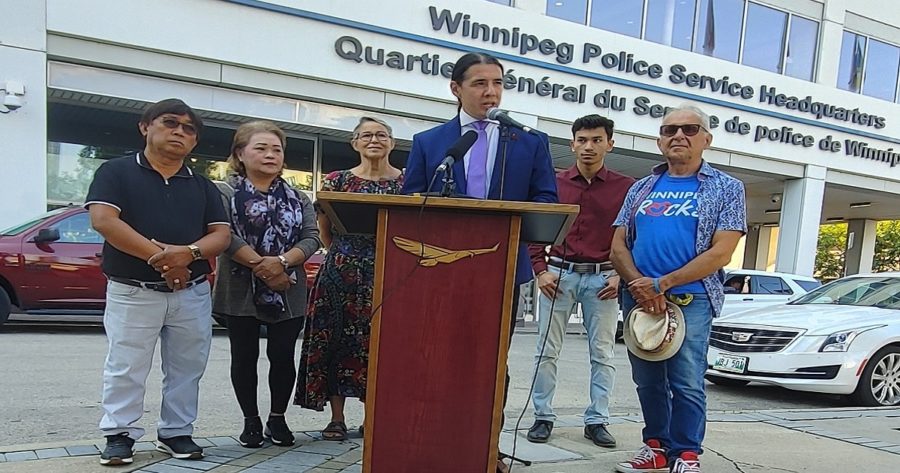Robert Falcon Ouellette Proposing Innovative Changes To Winnipeg Police Services
- TDS News
- Western Canada
- Elections
- Trending
- August 26, 2022

As Mayor, Ouellette promises to freeze the police budget at $310 million for the next four years.
Today Mayoral candidate Robert Falcon Ouellette is proposing significant changes to the Winnipeg Police Services (WPS’). Crime rates in the city are among the highest per capita among all Canadian cities and have branded Winnipeg as the homicide capital of the country. An ominous label that is cyclical and becoming harder to shed.
With an increased crime rate, the police budget follows in tandem. If elected to be the city’s next Mayor, Ouellette promises to freeze the police budget at $310 million for the next four years.
“Increasing WPS funding has had little impact on the crime Winnipeggers face day to day. Violent crime, property crime; all crimes are up year over year and have begun to top 5-year averages.” Said Robert Falcon-Ouellette
Ouellette wants to see the Winnipeg Police Services adopt a more innovative way of tackling crime and proposes establishing an innovation fund that the police service can apply to, to help solve crimes. Ouellette’s proposal is a significant departure from the status quo, as crime in the city steadily increases annually. The current administration’s solution is to throw money at the problem as its solution.
Under the current system, if the Winnipeg Police Service exceeds its budget, a request gets made to the Winnipeg Police Board for an increase in funds, where their requests are essentially rubber-stamped.
Community Safety & Innovation Fund (CSIF)
As a result of the WPS’s annual budget increases, the C.S.I.F. would be financed by those budgeted increases. Over four years, the move would put more than $21 million into community-based safety programs.
To evaluate different proposals from community groups and the WPS, a committee of the City Council would establish priorities and measurable outcomes. With the C.S.I.F., Ouellette sees an opportunity for community lead organizations to work with the WPS on innovative initiatives to reduce crime, resulting in a true community partnership with the WPS.
Enhanced Community Training & National Standards
In the future, Ouellette believes that police officers will have additional resources to address calls related to social issues. He would also like to see enhanced WPS training and look to adopt initiatives suggested by former Winnipeg Police Chief David Cassels, who is advocating for a reform of police training standards.
Police training, Cassels said, shouldn’t be like it is today, with its sharp focus on paramilitary format, rules, and physical and firearms skills, which he calls a “boot-camp type of training. A standard, modernized curriculum also needs to incorporate teachings on racism, bias and the impact of colonization on Indigenous Peoples. Most police officers never learn any of that and if they haven’t learned it in school, they really know very little about it, [as well as] understanding and dealing with people with health problems and marginalized groups.”
‘Training and policing should incorporate the history of our city. History that includes the good, the bad and the ugly of our relationship with the police’. Said Ouellette
Winnipeg Police Board (WPB) Review
It’s been over ten years since any significant changes have been made to the WPB, which can be interpreted as an advisory body that is not in line with current policing trends. Ouellette emphasized the need for change, citing an increased turnover rate of board members leaving or quitting because they do not feel heard.
Ouellette did acknowledge some of the proposed changes to the Police Act would require working with the Manitoba Provincial Government and the city’s elected officials.
‘We can’t forget that the police board was created because of our community’s desire for improved policing and a say in how that policing is done,’ Said Robert Falcon –Said Ouellette.
Ouellette’s approach to working to bring innovative change to the Winnipeg Police Services is long overdue. Putting in resources that will allow police officers to focus on policing is a step worth taking if it can reduce crimes and shed the city of one of its many unfavourable labels.








